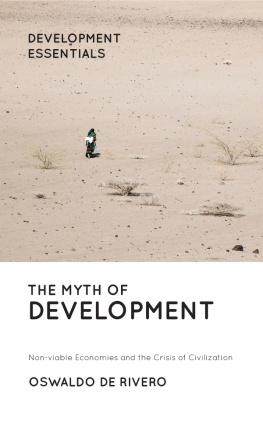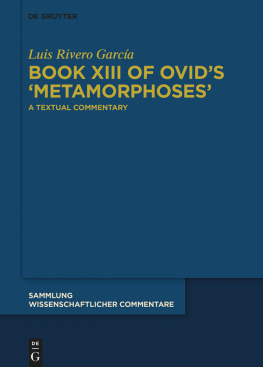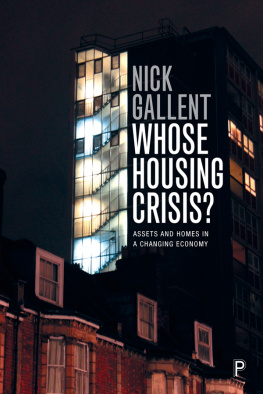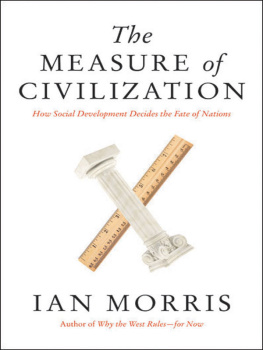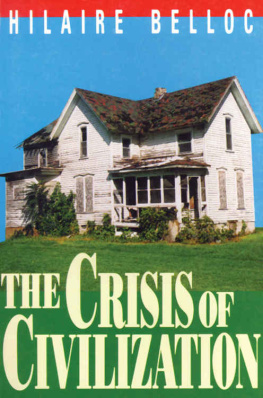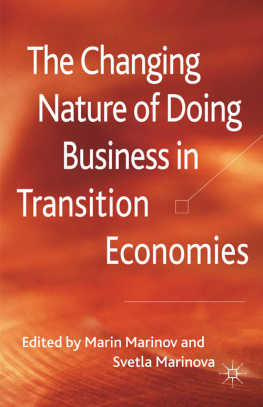Oswaldo de Rivero B. - The myth of development : non-viable economies and the crisis of civilization
Here you can read online Oswaldo de Rivero B. - The myth of development : non-viable economies and the crisis of civilization full text of the book (entire story) in english for free. Download pdf and epub, get meaning, cover and reviews about this ebook. year: 2019, publisher: Bloomsbury UK, genre: Politics. Description of the work, (preface) as well as reviews are available. Best literature library LitArk.com created for fans of good reading and offers a wide selection of genres:
Romance novel
Science fiction
Adventure
Detective
Science
History
Home and family
Prose
Art
Politics
Computer
Non-fiction
Religion
Business
Children
Humor
Choose a favorite category and find really read worthwhile books. Enjoy immersion in the world of imagination, feel the emotions of the characters or learn something new for yourself, make an fascinating discovery.
- Book:The myth of development : non-viable economies and the crisis of civilization
- Author:
- Publisher:Bloomsbury UK
- Genre:
- Year:2019
- Rating:3 / 5
- Favourites:Add to favourites
- Your mark:
- 60
- 1
- 2
- 3
- 4
- 5
The myth of development : non-viable economies and the crisis of civilization: summary, description and annotation
We offer to read an annotation, description, summary or preface (depends on what the author of the book "The myth of development : non-viable economies and the crisis of civilization" wrote himself). If you haven't found the necessary information about the book — write in the comments, we will try to find it.
The myth of development : non-viable economies and the crisis of civilization — read online for free the complete book (whole text) full work
Below is the text of the book, divided by pages. System saving the place of the last page read, allows you to conveniently read the book "The myth of development : non-viable economies and the crisis of civilization" online for free, without having to search again every time where you left off. Put a bookmark, and you can go to the page where you finished reading at any time.
Font size:
Interval:
Bookmark:

About the author
Oswaldo de Rivero is a Diplomat, Ambassador (retired) with the Foreign Service of Peru. He has served in London, Moscow, Geneva and New York; as Perus Permanent Representative to the World Trade Organization (WTO), to the United Nations Offices in Geneva and New York and on the United Nations Security Council. He has written numerous essays and articles in Le Monde Diplomatique, The UNESCO Courier , as well as the written press in Geneva and Latin America.
THE MYTH OF DEVELOPMENT
Non-Viable Economies and the
Crisis of Civilization
Second edition
Oswaldo de Rivero
Translated by Claudia Encinas and Janet Herrick Encinas

The Myth of Development: Non-Viable Economies and the Crisis of Civilization, second edition, was first published in 2010 by Zed Books Ltd, The Foundry, 17 Oval Way, London SE11 5RR, UK
The first edition, The Myth of Development: Non-Viable Economies of the 21st Century , was first published in 2001 and the second edition in 2010
www.zedbooks.co.uk
Copyright Oswaldo de Rivero 2010 and 2019
Translation copyright Zed Books
The right of Oswaldo de Rivero to be identified as the author of this work has been asserted by him in accordance with the Copyright, Designs and Patents Act, 1988
Typeset by KnowledgeWorks Global Ltd., Chennai, India
Index by Rohan Bolton,
Cover designed by Kika Sroka-Miller
All rights reserved. No part of this publication may be reproduced, stored in a retrieval system or transmitted in any form or by any means, electronic, mechanical, photocopying or otherwise, without the prior permission of Zed Books Ltd.
A catalogue record for this book is available from the British Library
ISBN 978-1-78699-760-9 hb
ISBN 978-1-78699-761-6 pb
ISBN 978-1-78699-762-3 ePub
ISBN 978-1-78699-763-0 PDF
ISBN 978-1-78699-764-7 Mobi
Printed and bound by CPI Group (UK) Ltd, Croydon, CR0 4YY

to Penelope
Contents
Oswaldo de Rivero
After more than sixty years of development theories and policies, only two city states, Singapore and Hong Kong, and two nation states, South Korea and Taiwan, are considered to have moved from developing to developed. Today, the only nation state that is in a rapid process of unsustainable development is China.
Owing to climate change, today more than ever, development is a myth, because all countries (developed as well the so-called, erroneously, developing countries) are mired in a crisis of civilization.
This crisis of civilization is due to the fact that all countries in the world are in a process of unsustainable urbanization, following what I have called the California model. This consists of an urban expansion, as has happened in California, using fossil fuels that emit millions of tons of CO2 to the atmosphere, adding to global warming. Furthermore, this urban expansion destroys agricultural land and diverts water resources intended for farming to the ever-expanding urban centers.
Today, the Californian model of urban expansion is, to a lesser or greater degree, the global paradigm of urbanization and civilization. All the worlds cities expand by pouring cement; by destroying agricultural lands and biodiversity; by insatiably devouring water, food and petroleum; and by turning the private automobile with its combustion engine into the transport king, spewing into the atmosphere tons of CO2 and other greenhouse gases, polluting the air and compounding global warming.
The year 2010 will be remembered as historic for humankind: for the first time since the Neolithic Era began, more than 50 per cent of the planets population were living in cities. In the year 2050, the planet will be super-urbanized, with more than 80 per cent of its inhabitants living in sixty megalopolises and hundreds of cities of roughly 1 million inhabitants each. The greater part of this planetary urbanization is occurring in the underdeveloped countries. Thus the cities of Latin America, the Middle East, Asia and Africa are expanding, like those of California, over agricultural lands and forests, consuming the water that should be used for food production, clogging their streets with automobile traffic and its pollution and adding more CO2 and other greenhouse gases to those already accumulated in the atmosphere since the industrial revolutions of the developed countries.
According to United Nations statistics, urban expansion in the underdeveloped countries is adding half a million people per week to their cities. By 2020, the population of the underdeveloped countries will have reached 6 billion, the great majority of whom will be living in cities. Such a mass of humanity will consume millions of liters of water, tons of food and incalculable amounts of energy. Following the present trend, these vital resources will be ever more limited and expensive. At that point, what I call a physical-social imbalance will emerge between the available supplies of water, food and energy on one hand, and the poor countries burgeoning urban populations on the other.
The world today has many cultures but only one civilization: the global urban California model that is present to some degree in all countries. This urban civilization model has reached a crisis: so far, due to ethical, political or technological factors, it has been incapable of solving two problems that are fundamental for its sustained existence. First, it has been unable to substitute its dirty fossil fuels, such as coal, petroleum and gas, causing the threat of global warming. Second, it cannot change its consumption patterns, plundering the earths resources and converting it into a gigantic garbage dump.
A great many economists and politicians do not realize that the present crisis afflicting the world is a crisis of civilization. It is a crisis of the style of urban life consumerist, free spending, environmentally unsustainable of the California model, which has ended in unstoppable global warming.
However, it is very common today to hear the concept of sustainable development recommended as a panacea to solve this civilizations crisis. In fact, the proposed sustainable development is an oxymoron, since development cannot be sustainable, because, today, not even a combination of many renewable energies could replace the daily requirement for 90 million barrels of petroleum to generate the 320 billion kilowatt-hours that produce the $60 trillion worth of goods and services of the global economy. Currently, more than 75 per cent of the energy used globally is in the form of petroleum, coal and gas. At present, our civilization is still far from capable of living without these polluting energies.
The only renewable energy source that is totally clean and perpetual, and could replace petroleum and coal, is hydrogen fusion. Achieving this energy would be like finding the holy grail of lasting, clean energy, or like the energy of the sun being produced on the earth, with no danger of radioactivity. Fusion energy is still a project that needs vast research and development as well as billions of dollars. The experts believe that it would take another twenty years of research to make it feasible.
In any case, if we are to escape the crisis of our civilization, it is urgent that we continue developing more efficient and less costly sources of renewable energy, not only because global warming must be stopped, but also because the petroleum that moves the global economy at present is not infinite. Studies and the opinions of qualified experts agree that the worlds reserves of petroleum are running out; its production has already reached its peak and will begin its inexorable decline within fifteen years.
Next pageFont size:
Interval:
Bookmark:
Similar books «The myth of development : non-viable economies and the crisis of civilization»
Look at similar books to The myth of development : non-viable economies and the crisis of civilization. We have selected literature similar in name and meaning in the hope of providing readers with more options to find new, interesting, not yet read works.
Discussion, reviews of the book The myth of development : non-viable economies and the crisis of civilization and just readers' own opinions. Leave your comments, write what you think about the work, its meaning or the main characters. Specify what exactly you liked and what you didn't like, and why you think so.

